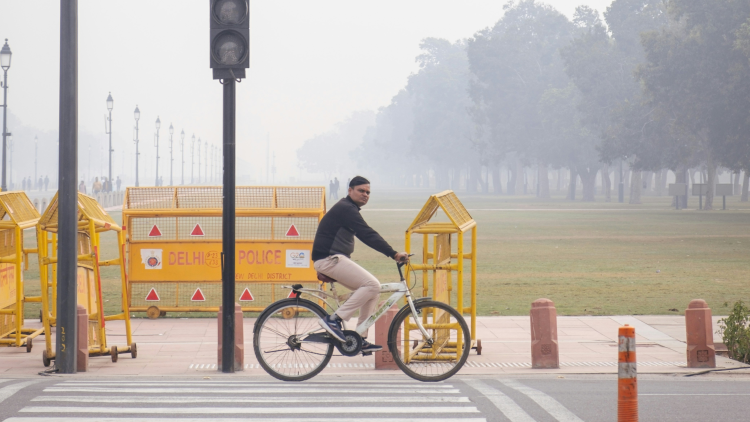A recent investigation from an ICFJ network member provides fresh evidence that an Indian company allegedly sold low-quality coal as high-quality – for triple the price – to India's state-owned power company. This is significant: Low-quality coal produces more pollution – in a country where air pollution was responsible for nearly 1.65 million deaths in a single year.
These findings were unearthed in an investigation led by ICFJ Hans Staiger Investigative Reporting awardee Anand Mangnale. “In India, the mainstream media has largely become a vessel for propaganda,” said Mangnale. “This award shows how vital and important investigative journalism is – the kind that demands time, dedicated effort, and a willingness to confront risk for the greater good.”

Mangnale is right. As democracies around the globe erode, high-impact investigative journalism that serves the public interest is even more crucial. At ICFJ, supporting this work has been and always will be essential to what we do. Over the years, we have seeded and grown cross-border investigative networks. Most recently:
- Our Mexico Border Hub has supported hundreds of data-driven investigations, uncovering corruption and misconduct – many of them leading to positive change at local, state and federal levels. The initiative has trained over 1,300 journalists along the U.S.-Mexico border since 2018. Now, the project is entirely run by a local partner, who is carrying forward this important work.
- Drawing from our experience in other regions of the world, we recently launched the Asia Investigative Reporting (AIR) Network, in partnership with Pact. This new initiative brings together journalists across Southeast Asia to pursue cross-border investigations on issues ranging from environmental crimes to human rights abuses. With the goal of becoming a self-sustaining organization in five years, the network is training journalists to respond to challenges such as limited funding, threats and fear of political persecution.
This kind of investigative journalism makes a difference in people’s lives. It requires time, skills and funding. At ICFJ, we will continue to provide that support to the journalists in our network, because without accountability, democracies can’t flourish.